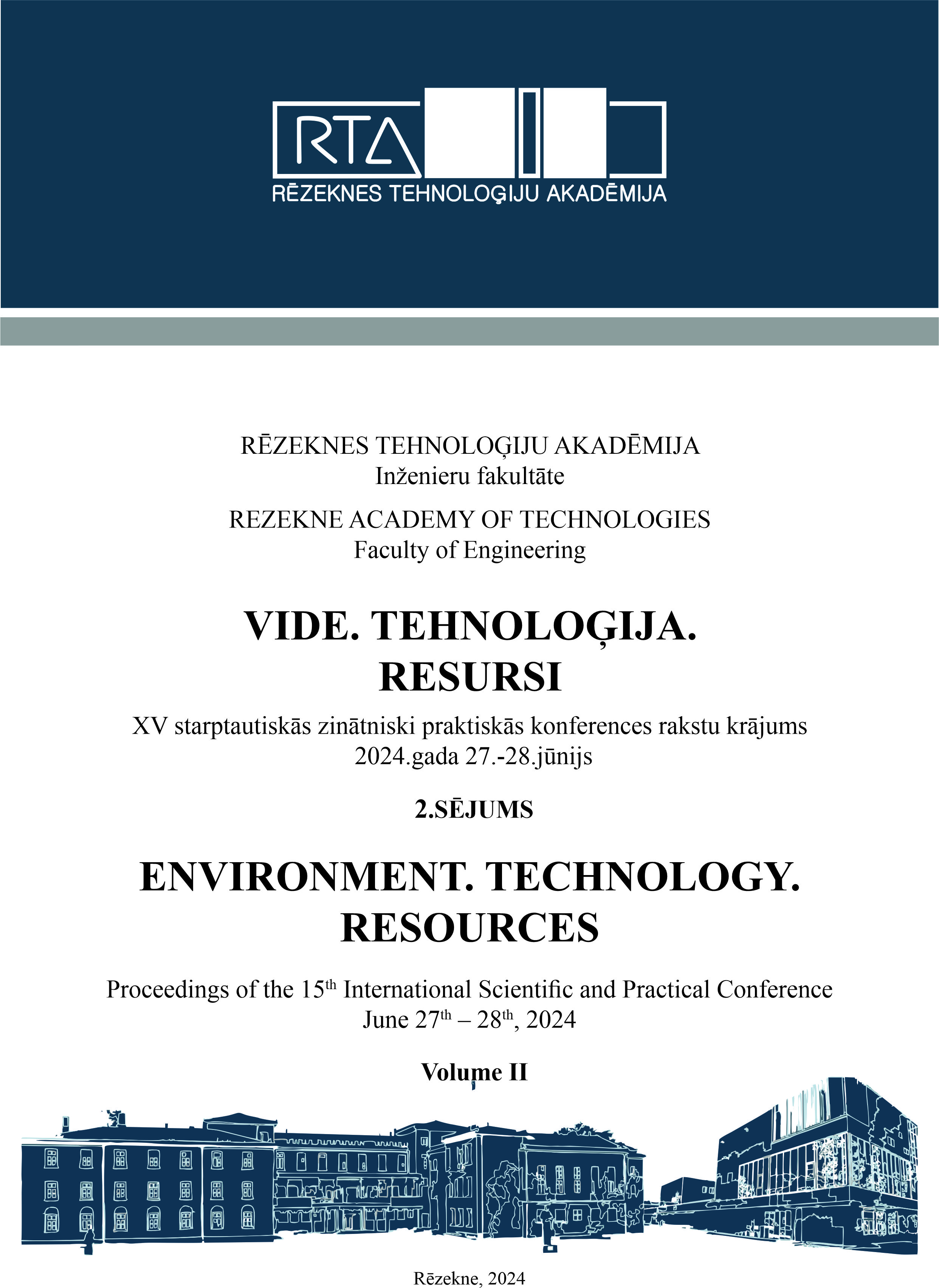PHYSICAL ACTIVITY RECOVERY MODEL IN POST COVID-19 PERIOD: LATVIA CASE STUDY
DOI:
https://doi.org/10.17770/etr2024vol2.8061Keywords:
post COVID-19, socio-technical modelling, sports, system dynamicAbstract
Physical activity is one of the triggers to sustainable economic and social development of societies. The Political Declaration of the 2030 Agenda reflects on “the contribution sports make to the empowerment of women and of young people, individuals and communities, as well as to health, education and social inclusion objectives” [1]. COVID-19 restrictions forced the industry to find new ways to organize interregional and international events and find the ways out of the sudden crisis [2]. In this paper, authors focus on analysis of physical activity and sports recovery process after COVID-19 pandemic that has created profound challenges for youngsters and their family members. This research relies on empirical data collected from main orienteering sports events in Latvia and demonstrates original forecast model that compliments existing system dynamic simulation models affected by COVID-19 situation with respect to increased level of digitalization and extensive use of technologies. Research outcomes demonstrate that the cancellation of sports activities negatively affects such social aspects as people mobility, social cohesion, emotional satisfaction and excitement. As follows, it leads to lower physical and mental activity for individuals, especially children and youth. At the same time, the research outcomes of authors’ developed system dynamics simulation model shows that a recovery process of analysed physical activity and sports events is reasonably fast and, in the most cases, in two years reached a level of pre-COVID-19 period with tendency to positive growth in future. Created original system dynamic simulation model embraces full data sets of ten years (2014-2023), extracted from orienteering sports events published data in Latvia, as well as outcomes of several practical testing and theoretical research activities in Latvia and Albania. For collection and systemization of empirical data, authors used the concept of “Citizen Science”. The Citizen Science is an ever-growing field of public engagement with science, and recent years have seen an increasing number of studies examining its potential [3]. The conclusions, made by authors of this research, are useful for various sports and active lifestyle events’ organizers, supporters, spectators and others, involved in the organization process of physical activity and sports events to attract more participants, spectators and tourists to their areas.
References
World Health Organization, “Shanghai declaration on promoting health in the 2030,” Agenda for Sustainable Development (No. WHO/NMH/PND/17.8). World Health Organization, 2017.
G. Bukovska, A. Mezgaile, and A. Klepers, “The Pressure of Technological Innovations in Meeting and Event Industry under the Covid-19 Influence”, ETR, vol. 2, pp. 44–50, Jun. 2021, doi: 10.17770/etr2021vol2.6623.
L. Finger, V. Van den Bogaert, L. Schmidt, J. Fleischer, M. Stadtler, K. Sommer and J. Wirth. “The Science of Citizen Science: a Systematic Literature Review on Educational and Scientific Outcomes”, Frontiers in Education, 2023, doi:10.3389/feduc.2023.1226529.
The Manchester Briefing on COVID-19: international lessons for local and national government recovery and renewal, Issue 44 (2021), Understanding ‘whole-of-society’ resilience. Available at: https://www.alliancembs.manchester.ac.uk/research/recovery-renewal-resilience-from-covid-19/briefings/ [Accessed: Jan. 17, 2024].
A. Fotiadis, S. Polyzos, T. C. Huan, “The Good, the Bad and the Ugly on COVID-19 Tourism Recovery”, Annals of Tourism Research, Volume 87, 2021, 103117, ISSN 0160-7383, doi:10.1016/j.annals.2020.103117.
P. Sajjad and M. Perić. “The future of sports tourism in the light of the COVID-19 pandemic – Developing a new paradigm model.” Journal of Tourism Futures , 2023, doi:10.1108/jtf-09-2022-0236
T. Daniels and T. M. Tichaawa. “Rethinking Sport Tourism Events in a Post-Covid-19 South Africa.” African Journal of Hospitality, Tourism and Leisure, 2021, doi:10.46222/ajhtl.19770720-160.
A. Andersons, S. Ritter, R. Prodani, and J. Bushati, “Enhanced Participants’ Registration Model on Open Public Events”, ETR, vol. 2, pp. 13–20, Jun. 2021, doi: 10.17770/etr2021vol2.6587.
X. Y. Tang, C. X. Wang, X. N. Pu and J. W. Feng, ”Orienteering Timing System Based on Sub-G Band Wireless Sensor Network”, In 2019 IEEE 3rd International Conference on Circuits, Systems and Systems and Devices (ICCSD) (pp. 124-131). IEEE, Aug., 2019, doi: 10.1109/ICCSD.2019.8843156
Latvian Orienteering federation, “Online database of event statistics”, Available at: https://lof.lv/rezultati [Accessed: Dec. 11, 2023].
M. Scerri, V. Grech, Discussion: COVID-19’s impact on sports and athletes. Ger J Exerc Sport Res 51, pp. 390–393, 2021, doi: 10.1007/s12662-021-00726-6.
G. Raiola and F. Di Domenico, “Physical and sports activity during the COVID-19 pandemic”, Journal of Physical Education and Sport, 21, pp. 477-482, 2021, doi:10.7752/jpes.2021.s1049
Downloads
Published
Issue
Section
License
Copyright (c) 2024 Aigars Andersons, Rafail Prodani, Jozef Bushati, Gjulio Zefi

This work is licensed under a Creative Commons Attribution 4.0 International License.



